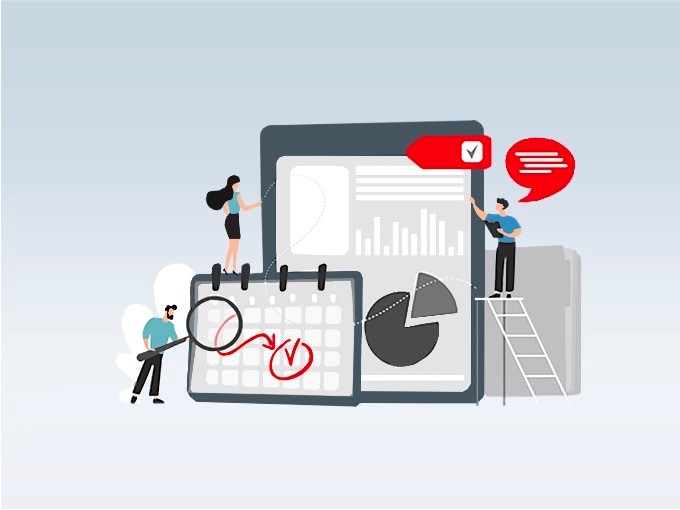Small business loans - Invoice Financing vs Term Loan
Small business loans - Invoice Financing vs Term Loan
One of the biggest challenges SMEs face is cash flow, since part of the business’ revenue is usually channelled towards monthly expenses and other projects.
SMEs also have a shorter runway than large businesses which tend to have bigger stockpiles of cash over time. This means for younger businesses like yours, a delayed invoice or large purchase can be more detrimental.
Luckily, there are ways for SMEs to guard against this risk. Invoice financing (sales), for example, allows you to release funds that are locked up as unpaid invoices and you can get up to 70% to 90% of the invoice’s value. You will only need to repay the loan upon the maturity date.
This form of financing can also be used for purchases. In this case, businesses will usually receive the full amount of an invoice and repay the bank at an agreed date.
Alternatively, you can fund your expenses by taking regular term loans, which typically come with longer repayment periods. Take note that these small business loans have requirements on shareholding, annual revenue and how the funds are used. This includes green loans for sustainable projects.
How to decide which one is best for you? Make sure you consider these three pointers beforehand.
1. What are the funds for?
Invoice financing is well-suited for businesses in a wide range of industries, commonly used in wholesale trade, construction and manufacturing industries. This form of financing can bridge the cash flow gap between having to pay business expenses and getting paid by clients.
Suitable as a short-term funding solution for businesses who face tight timelines, clients not paying on time, or opportunities to secure new contracts and projects, invoice financing allows SMEs to turn invoices into working capital without adding more liabilities to the balance sheet. As businesses typically borrow what they are owed, or what they have spent on their operations, there is less risk of racking up bad debt.
If funds are needed for big improvements, such as technology upgrades or buying a new commercial property, you might consider taking a term loan. On this front, you’ll notice the longer repayment periods so you can work the instalments into your budget. For example, OCBC’s Commercial Property Loan can be repaid over a term of up to 30 years.
2. Cost matters
Particularly with loans, you will need to consider the interest rates. In the case of a regular term loan, the Effective Interest Rate (EIR) comes with no surprises when it is calculated clearly at the start.
For instance, the earlier-mentioned Commercial Property Loan has an EIR of 3-7% per annum.
To help businesses rebuild from the COVID-19 crisis, government-assisted loans are also offering attractive interest rates.
On the other hand, invoice financing typically involves an upfront fee of 0.25% of the invoice amount as handling charges and interest on the financing amount. With invoice financing, you will also have the added benefit of paying interest only on the amount that you use, giving your business the added flexibility and cost savings.
3. What are your business' specifics needs?
Looking at the bigger picture, the total “cost” for your business will vary depending on the number of invoices you choose to finance, and how reliable your clients are.
Invoice financing should not be viewed as a credit line, but rather, as a cash advance for revenue that has already been secured. This can work on the purchase front, if essential equipment or services are needed to ensure business continuity.
On the sales front, this can also work if the bigger clients that you rely on are delaying payments. Having too much time between revenue and payment would make it difficult for you to balance the books. Hence, getting the funds in advance to smooth this out can be invaluable and give you the confidence in approaching obstacles ahead.
In fact, the invoicing cycle is changing for some SMEs. Some large corporations are asking for longer payment terms of 90 or even 120 days, as they manage pressures arising from the pandemic. Being able to cater this might make your SME a more attractive partner, that is cognisant of the difficult operating conditions in Asia and beyond.
There might be instances where a term loan would be more suitable. SMEs need time—and often more time than larger businesses—to finance business-changing expenses that cannot be afforded by invoice financing.
This is where government-assisted loans can come in handy. Some of these loans specifically cater to SMEs and start-ups that don’t have the collateral needed to qualify for standard business loans.
As every SME has different needs, there is no single method that would satisfy all. Knowing these points can help you better choose the financing method that would best benefit your business.
You may be directed to third party websites. OCBC Bank shall not be liable for any losses suffered or incurred by any party for accessing such third party websites or in relation to any product and/or services provided by any provider under such third party websites.
Discover other articles about:



